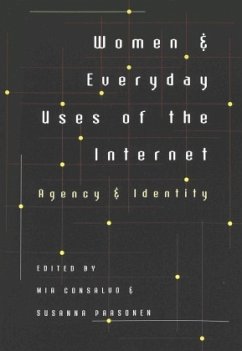
The Internet and Kinship: Agency and Structure through the Internet
A Case Study of Internet Usage in Jordan
Versandkostenfrei!
Versandfertig in 6-10 Tagen
32,99 €
inkl. MwSt.

PAYBACK Punkte
16 °P sammeln!
The book applies the theories of Structuration and reflexivity to the Internet in Amman, Jordan, to argue how the Internet can challenge authority as embedded in kinship social formations. In the first place, the Internet can be an empowering agent by challenging authority; at the same time, kinship s social and moral codes can structure the reflexivity, Structuration, and agency that users derive from the Internet. This book argues that there is a symbiotic relationship between the Internet and kinship. Situating Internet usage within kinship would challenge technological determinism. Further...
The book applies the theories of Structuration and reflexivity to the Internet in Amman, Jordan, to argue how the Internet can challenge authority as embedded in kinship social formations. In the first place, the Internet can be an empowering agent by challenging authority; at the same time, kinship s social and moral codes can structure the reflexivity, Structuration, and agency that users derive from the Internet. This book argues that there is a symbiotic relationship between the Internet and kinship. Situating Internet usage within kinship would challenge technological determinism. Furthermore, the book explains how and why an anthropological approach to media, including the Internet, would be especially suitable for exploring the Internet s functions in users lives. Finally, the book uses an interview of an Arab woman student (who was in the University of Texas in Austin at the time of the writing) to support its argument.












